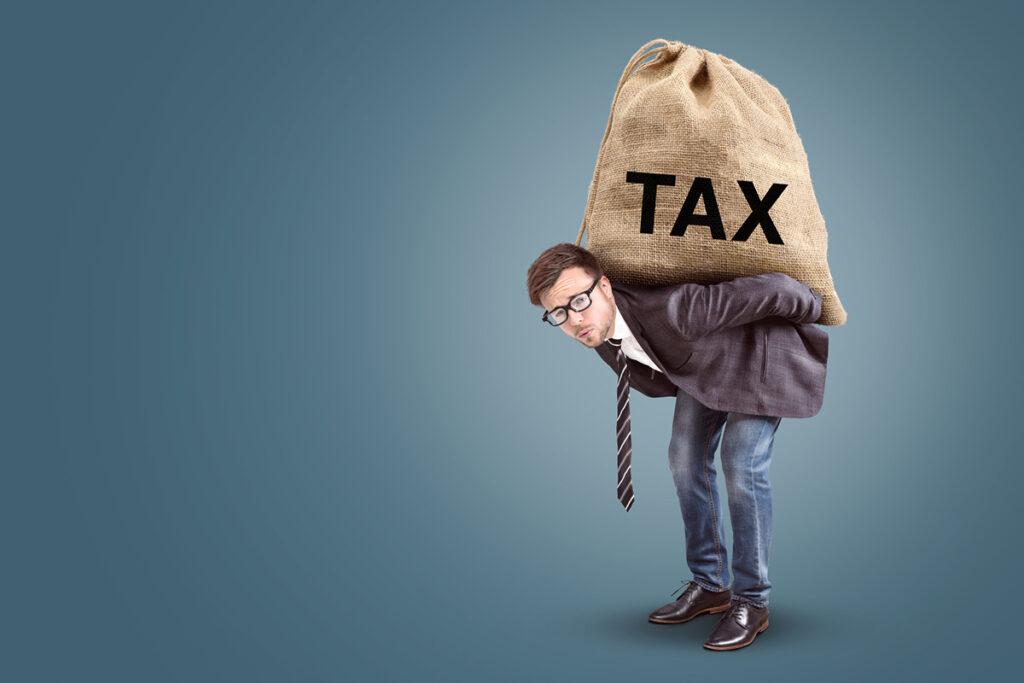The issue of online retail killing the High Street has once again been prominent in the mainstream and trade media last week, with the fall out of the House of Fraser death-and-resurrection show, while M&S and Homebase both brought down the shutters on a large proportion of their real estate.
Typically, online retail copped the blame and the spectre of ‘Amazon Tax’ – a nebulous proposal to tax online retailers based on sales to try and level the playing field reared its ugly head again.
Chancellor of the Exchequer Philip Hammond signalled in an interview with Sky News that he could impose a new tax on online platform businesses based on value generated.
“We want to ensure that taxation is fair between businesses doing business the traditional way and those doing business online,” he said.
But while Amazon – and many other giant multinationals certainly don’t pay the corporation tax that many believe they should (thanks largely to where they choose to locate their HQs, quite legally), taxing online revenues or sales as a way to save the High Street – and traditional retailing in general – is flawed.
Sure, retailers with a physical presence do have to pay high rents and rates, which many online retailers don’t, trying to level the playing field by taxation isn’t going to work. For starters, all it does is pass on a cost to consumers. Sure, it may make it more difficult for online retailers to undercut traditional retailers, but all that will really happen is that people will simply buy fewer things with the money they have available.
Secondly, the real problem here is that people like shopping online and increasingly like the ease of using a single point of contact, such as Amazon.
A study out later this week from Salesforce finds that in fact more than half of shoppers turn to marketplaces to buy anything simply because it is easier – it is also cheaper and often quicker, with more variety too.
More pressingly, many who do buy something from a retailer site, go back to do any follow up or repeat purchasing through a marketplace. Marketplaces aren’t just attracting customers to buy, they are also eating into consumer loyalty.
This isn’t just about price: this is about ease of use and changing shopping habits. The Treasury can tax all it likes, taxation never has the impact that is intended and, in the case of ecommerce and marketplaces, the idea is not going to have the impact that many in retail hope.
“The limited tax paid by online pureplays like Amazon creates an uneven playing field between these retailers and those with physical stores who face rising costs, including business rates and wage costs. However, this inequality alone cannot be blamed for the recent struggles of high street retailers, such as House of Fraser. Shoppers want to buy from online retailers because they offer greater product choice, lower prices and flexible delivery options. An ‘Amazon tax’ would not remove the benefits that many online retailers offer versus traditional physical retailers, and could hinder a fast-growing sector of the economy. Additionally, an ‘Amazon tax’ would not decrease the amount that physical retailers are required to pay, especially as they are also absorbing costs of developing and improving their e-commerce systems in order to remain relevant to consumers.”
– Emily Salter, Associate Analyst Global Data
So what can be done? Firstly, in an era where everyone bangs on about ‘democracy’, ‘taking back control’ and other general tropes of the ‘ free market’, is it right for government to intervene at all in any market? State intervention – even through taxation – comes with caveats and let’s face it will lead to cries of ‘Unfair’ from the online retail sector.
The online market has grown through taking advantage of an outdated system, true, but it has also grown through innovation, hard work and most significantly of all, doing what its customers want of it.
House of Fraser didn’t collapse because of the internet – it collapsed despite the internet. It was one of the leaders in trying to be multi- if not omni-channel: it failed because its business model was old and its costs too high. It also failed because even my 78 year old mother and her friends now prefer to shop online. That is the real reason.
Taxing that might help – but then what? No one will still want to actually go to the High Street to buy things. Amazon may be more costly if tax is imposed, but the High Street experience would still be awful. The two things aren’t linked.
What is needed – and what will come – is the old will slowly fade away (as HoF and others are doing right now) to be replaced by then new. Shops will be what 18 year olds want them to be and they will be born out of what they can’t get from online.
Instead of taxing online retailers, the government should be looking at how to encourage those that know what is missing to bring it to the High Street. Sure that can involve tax incentives for using stores – but once the High Street finally empty, they won’t be able to give shop space away and it will happen anyway.
I think of it a lot like residential gentrification. When I was growing up, Camden town was cheap, rough, full of junkies, punks and all sorts. It was also really cool and really underground. You could also live there really cheaply. Now it is so posh it can hardly speak and is a horrid tourist trap.
Same goes for Shoreditch, Hoxton, Hackney, Leeds, Manchester and Liverpool. All once dead eyed cities, now all thriving – all because property became so cheap people moved in. The same will happen to the High Street. It just has to hit the bottom, then the hipsters will come.








2 Responses
“The government” we currently have is out of touch and the one that could replace it is even more “out of touch”….Corbyn is up here banging the “manufacturing” drum again in Central Scotland, telling us we are all going to be happy little workers in some factory again (rinse repeat same old rubbish).
Tax and past is all they have.
Our high streets are full of To Let and for Sale signs, only this week 2 more pubs in my small town shut their doors, we have 3 left out of what was 7 last year. We have an outlet centre a stone’s throw from our house with half the units empty. I know exactly what I would do, but am being fleeced by councils, rent and tax before I could get ahead so why should I invest my money and time. I have the easy life right now.
You could make these places attractive again but to many still live in the past, the previous mentioned.
We could fill one of those units but the owners of the Centre still think it is 2002 their prices are outrageous and they expect me to open and shut at their whim. The whole outlet will be gone in 3 years. We run our business fit for this decade not the last. Cheap, rough, full of junkies, punks and all sorts is what is happening here again.
However we should not bang the merits of the marketplace e.g all the time without looking at the negative impacts these have, to many are like Amazon zombies they do not even see they are very often getting a raw deal. Problem Amazon is killing offline and ONLINE…
Plus I don’t care what anyone says companies like Amazon cost more jobs than they make and keep wages subdued and do not put anything “back in”….and we have let to much power and influence into the “hands of to few”.
Anyway am sure the Brexiteers have all the answers in a few months…
Online shopping clearly offers many advantages that physical stores just can’t compete with. It’s pretty much impossible to change your retail model to compete with Amazon given long leases and legal ramifications that prevent bricks and mortar retailers from upping sticks. Aside from the physical hurdles, trying to compete against Amazon in the long run is a lost cause. How can you compete against someone so big and powerful. Overtime Amazon and a select few will pretty much defeat all retail competition. However we need to be aware of the consequences of the death of retail and the high street.
1. Ultimately governments/local councils need to replenish the taxes lost from the closed high street retailers to balance their books otherwise they can’t function. Who should be liable for this lost revenue? It has to be collected from someone?
2. 1 in 10 jobs nationwide is in the retail space. All these jobs will ultimately be lost in time with fewer created in the online space. Are we happy for a significant portion of the workforce to loose their jobs?
3. Amazon represented 49% of total online sales in the US (5% of total retail spend) in 2017. Are we happy for the whole of retail to ultimately be controlled by a concentrated number of shareholders in Amazon? The concentration of the wealth of the world is being further squeezed into a select few.
4. Are we happy to sit at home 24/7 in front of our laptops?
5. As footfall drops on high streets and shopping centers, the areas will become run down and out of fashion. They can’t survive solely on the back of hair saloons and cafes. These businesses will become effected too.